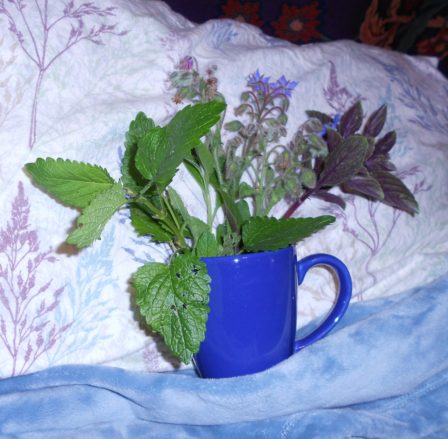To Sleep, Perchance to Take Herbs
There has been a recent blast of new research that confirms something you already suspected: you are sleep deprived and it is causing health problems for you. The evidence is now overwhelming that lack of sleep, even just the occasional all-nighter to study or finish a good book, has an immediate effect on blood sugar, blood pressure, brain chemistry and cortisol levels. Ah yes, the all –important cortisol levels that trigger such nasty biological mischief!
Ongoing deficits of sleep (less than seven hours a night) that most of us sustain due to our full lifestyles can result in stubborn weight gain that does not respond to exercise and/or diet. It can set us up for pre-diabetic insulin resistance; it wreaks havoc on our digestion and immune systems. Insomnia triggers general inflammation in the body that results in joint pain, arterial plaque, blood clots, and opens us up for all manner of chronic diseases, including obesity, diabetes, heart disease and cancer, to develop.
The sleep hygiene regimen includes things that are hard to accomplish in our lifestyle. The keys to it are a consistent and regular bedtime, sleeping in a completely dark room, getting regular exercise early in the day, avoiding stimulants including stress, getting 20-30 minutes or more daily exposure to the sun and, most alarming of all, turning off the computer an hour before bedtime. Wow. But when you weigh at the health benefits against the risks, it becomes worth it to try to mend our ways.
And, of course, there are herbs that can help you to achieve the steps. Reducing stress and overstimulation is a good place to start. There is a whole classification of herbs called “adaptogens” that are specifics for helping your body and mind be more resilient to physical, emotional and mental stress. These include things that are easy to add into your routine. How about Basil? Put it in pesto, salads, and sandwiches; even add it to a green smoothie. Then, there are things like American ginseng, eleuthero, ashwaganda (actually called Withania somnifera for its ability to help you sleep) and rhodiola. These can all be purchased as capsules or in liquid extract form. As loose powders, they can be added to fruit smoothies, soups and into baked items. By managing your stress levels, you will reduce the cortisol and be able to fall asleep more easily.
 Anxiety, that nagging voice in your head that won’t let you rest, is another thief of sleep. And, there are herbs designated to deal with this also. Many make tasty tea to drink any time of the day and especially instead of coffee or so-called energy drinks. Lemon balm, chamomile and catnip will accumulate their effects to restore some calm. They have the extra benefit of improving your digestion and reducing inflammation. Another tasty and effective mix might include damiana, linden and lavender. Not-so-tasty herbs to take the edge off (you can take them as capsules to avoid the bitterness) include hops, valerian and passionflower. These need to be taken regularly to build up an effect over time. If tea is not for you, it is possible to ingest the herbs as aroma therapy. One way to do this is to make an “eye pillow” that is stuffed with lavender, chamomile, hops and mugwort. When you place the pillow over your eyes, you breathe in the aromatic oils. These volatile compounds affect the neurotransmitters in a way that brings relaxation.
Anxiety, that nagging voice in your head that won’t let you rest, is another thief of sleep. And, there are herbs designated to deal with this also. Many make tasty tea to drink any time of the day and especially instead of coffee or so-called energy drinks. Lemon balm, chamomile and catnip will accumulate their effects to restore some calm. They have the extra benefit of improving your digestion and reducing inflammation. Another tasty and effective mix might include damiana, linden and lavender. Not-so-tasty herbs to take the edge off (you can take them as capsules to avoid the bitterness) include hops, valerian and passionflower. These need to be taken regularly to build up an effect over time. If tea is not for you, it is possible to ingest the herbs as aroma therapy. One way to do this is to make an “eye pillow” that is stuffed with lavender, chamomile, hops and mugwort. When you place the pillow over your eyes, you breathe in the aromatic oils. These volatile compounds affect the neurotransmitters in a way that brings relaxation.
While, as I always say, no herb can compensate for an unhealthy lifestyle, addling some herbal allies into your daily routine can support you in making small changes towards a better sleep program. The important thing is to reclaim your right to a good night’s rest. It is crucial to your well-being. Give yourself permission to make it a priority. Now go to bed.
Category: Life Style







